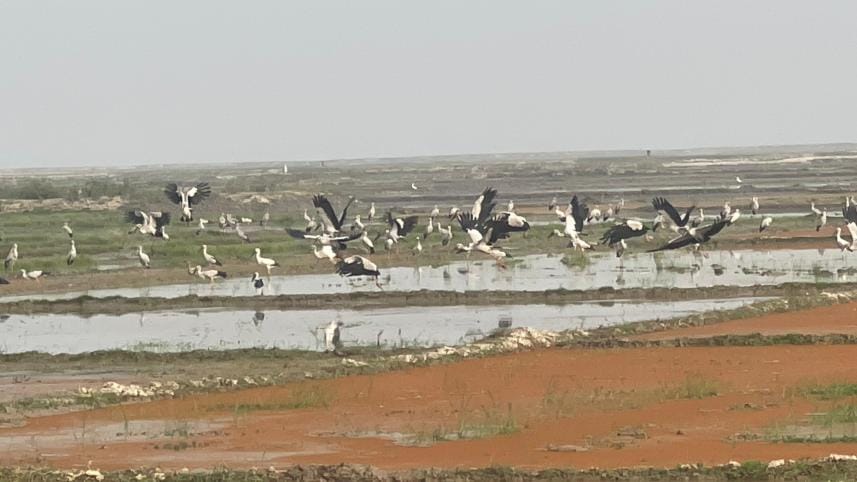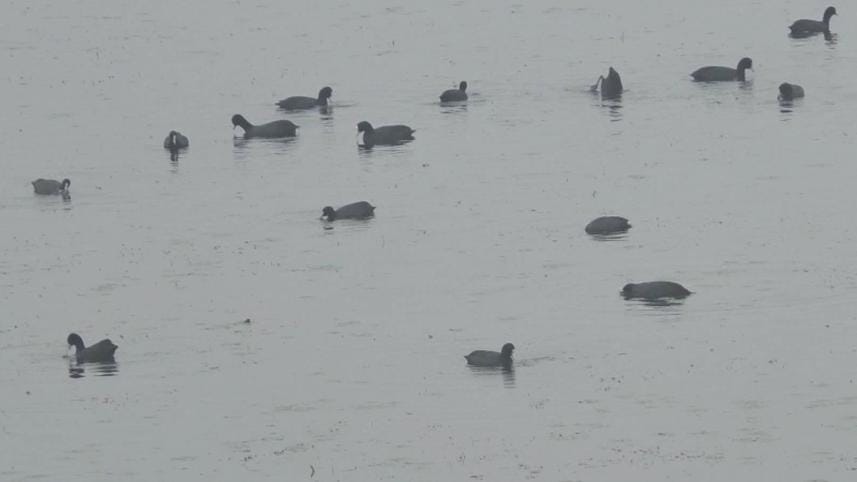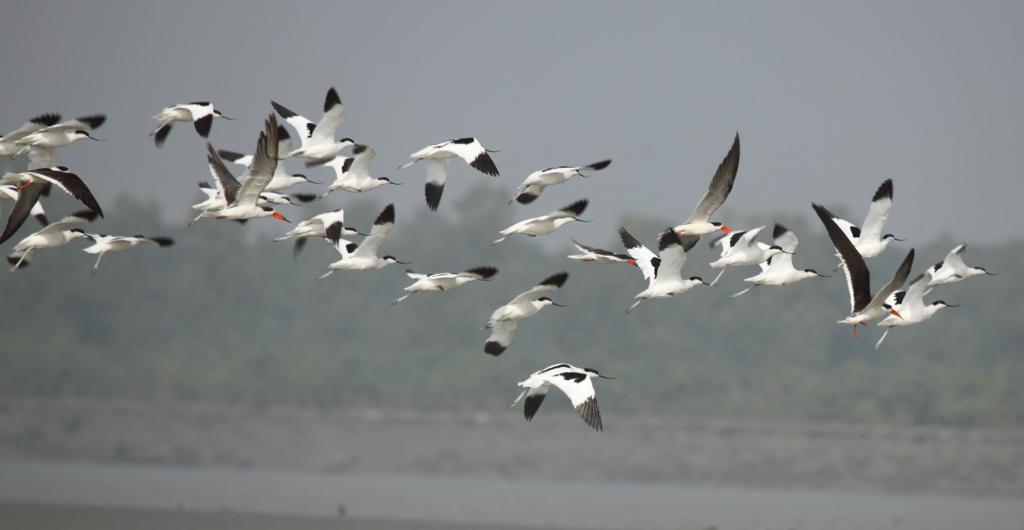No longer a sanctuary for migratory birds

Hakaluki Haor, one of the largest freshwater wetlands in Bangladesh, spanning five upazilas in Sylhet and Moulvibazar districts, was once a safe haven for migratory birds during winter.
Each year, the arrival of thousands of migratory birds of various species transformed the haor into a vibrant sanctuary, enhancing the natural beauty of the region and drawing tourists from across the country and beyond.
In recent years, however, the population of these winter visitors has significantly declined, raising alarm among bird experts and environmentalists.
According to the Bangladesh Bird Club's census data, the number of birds in 40 wetlands within the Hakaluki Haor area plummeted from 58,281 in 2017 to 18,660 in 2020.
The bird census was not conducted in 2021 due to the pandemic and in 2022 due to financial constraints.
In January 2023, a joint survey by the Bangladesh Bird Club and IUCN Bangladesh recorded 37,778 birds of 52 species, including 12,732 ducks and 4,537 small waterfowl, in Hakaluki Haor. The increase compared to 2020 was attributed to the absence of new development projects in the area.
However, the rise in bird numbers also saw an increase in illegal hunting activities, with poachers using traps and baits in the unprotected waters of the haor. This has made the wetlands increasingly unsafe for migratory birds.

Additionally, a sharp decline in the fish population and the depletion of aquatic vegetation have caused food scarcity, further discouraging the birds from returning to Hakaluki Haor.
"Soon after the birds begin arriving with the onset of winter, poachers actively prowl the wetlands to hunt them. Climate change, environmental pollution, and human activities further threaten their safety," said Fakhruzaman, a resident of Ashighar village in Kulaura upazila of Moulvibazar.
Kamrul Hasan Noman, an environmental activist and member of the Patharia Wildlife Conservation Team, said rivers flowing into the haor are polluted with plastic, polythene, and other waste discarded by neighbouring communities.
"Hunters are also using nets and poison baits to capture birds, exacerbating the decline. It is an alarming scenario," he said.
Sahadat Hosain, a student of Kulaura Degree College, said, "If indiscriminate hunting doesn't stop, a time will come when birds will stop coming to Hakaluki Haor."
Helal Uddin, president of the Ashighar Village Conservation Committee, said efforts are underway to ensure the safety of migratory birds arriving this winter.
Inam Al Haque, a bird expert, highlighted the loss of biodiversity in the haor, citing environmental pollution, drying waterbodies, hunting, food scarcity, and increased human activities as key factors behind the decline.
"In the 2023 bird census, no rare or endangered species were found, indicating that these migratory birds may have forgotten the path to Hakaluki Haor," he said.
Md Mahi Uddin, upazila nirbahi officer of Kulaura, said the local administration has a strict stance against bird hunting and will soon conduct raids against poachers in the haor areas.




 For all latest news, follow The Daily Star's Google News channel.
For all latest news, follow The Daily Star's Google News channel. 

Comments